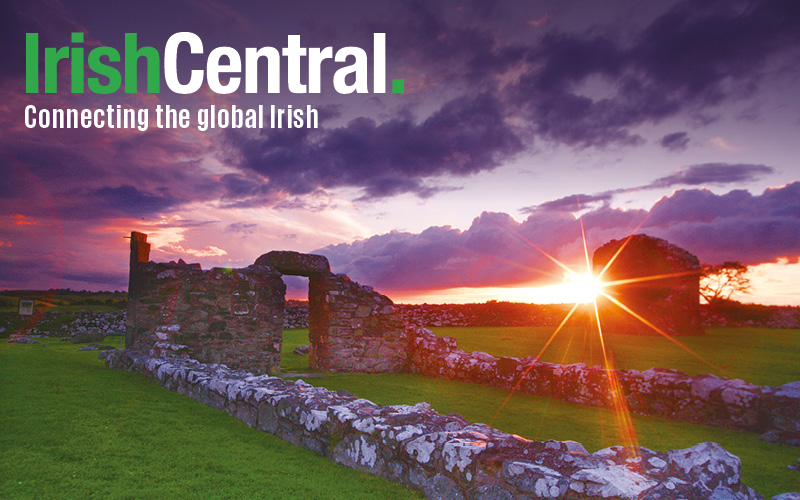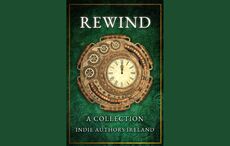| Trina Vargo President of the US-Ireland Alliance |
The recently released September/October edition of Village, a left of center Irish political magazine, features an interview with Trina Vargo, President of the US-Ireland Alliance, which seeks to build a new, modern relationship between the two countries. Most notably, the Alliance runs the George Mitchell Scholarship programme, which annually offers twelve highly-qualified American college and university graduates the chance to pursue postgraduate studies at universities across the island of Ireland.
Ms. Vargo is no stranger to IrishCentral readers. Her November 2007 Irish Times opinion piece, in which she expressed her opposition to lobbying efforts to assist undocumented Irish people living in unfortunate situations in America and even likened shrewd politicking to this end to putting “lipstick on that pig,” raised the eyebrows of Irish-Americans committed to ensuring that today’s Irish emigrants have the same opportunities as their forebears.
Subsequent and repeated dismissive and derogatory comments about Irish America, as well as her support for efforts led by the far-right in the US to defund the International Fund for Ireland, only confirmed the suspicions of many Irish-Americans about Ms. Vargo.
Earlier this year, she slammed the Irish Department of Foreign Affairs for producing a Certificate of Irish Heritage for President Barack Obama and ridiculed the annual shamrock ceremony on St. Patrick’s Day which allows the prime minister of a tiny island nation to have direct access to the leader of the western world. She also praised Irish Times columnist Donald Clarke for penning a heinous piece of invective, “Americans, if you want the full Irish, take it.” Mr. Clarke, in her words, is one of those who “get it” when it comes to the relationship between Ireland and the US.
As the Village magazine interview reveals, Ms. Vargo is undaunted in her beliefs that she and her Alliance hold the keys to unlocking the true potential of the relationship between Ireland and the US, that Irish America is all but dead and that the “old” relationship between the two countries doesn’t work anymore for people on either side of the Atlantic. Three of the quotes attributed to her by Village editor Michael Smith – the interview is tellingly entitled “Drinking up time for Irish America” – are worth reprinting and exploring here.
First, she says that in 1998, after the Good Friday Agreement was signed, “Northern Ireland was basically sorted.” This is a ludicrous statement. It demonstrates that, despite having been Senator Edward Kennedy’s point person on Irish issues, Ms. Vargo just doesn’t get it. There is no need to recount the litany of horrific incidents north of the border over the past 14 years or to point to the still-deplorable conditions of life for so many in both the nationalist and loyalist communities. That Trina Vargo thinks that a few strokes of a pen could “sort” Northern Ireland is indicative of her lack of understanding of what life is really like for the people who live there and of the complex task faced by the many organizations who work with both communities. I know some of these people personally, and they would be dumbstruck to hear such nonsense.
Second, when asked what should be the basis for transatlantic initiatives with a permanent remit, Ms. Vargo does not immediately mention engagement with the ongoing healing process in Northern Ireland or with restoring economic growth in the midst of the current malaise. Instead, her initial reaction is that she “would make a much heavier play about building up the arts brand.” This is an important aspect of the transatlantic relationship and has yielded a number of successful collaborations and financial windfalls. But surely the work now undertaken by individuals and organisations based in the US to foster a more cooperative society in Northern Ireland and to renew prosperity in Ireland is far more important than the arts?
Third, and most disturbingly, Ms. Vargo simply won’t be moved from her obviously heartfelt view that the undocumented Irish in the US are not worthy of the assistance of the Irish government or of Irish America. And now, she appears willing to challenge the estimates of how many undocumented Irish there are in the US. Challenging the estimates made by people who actually know and work with the undocumented Irish communities – i.e., those best placed to make an educated guess – Ms. Vargo says in Villagethat her own guess “is that it is closer to 10,000 than 50,000.” There is no basis for her estimate, and there is no evidence that either Ms. Vargo or her Alliance has ever reached out in any way to the undocumented Irish.
The precise number notwithstanding, and as she says in the interview, Ms. Vargo still doesn’t think Irish people need to emigrate, argues that freedom of movement within the European Union is a big draw for putative Irish emigrants and notes that Australia and Canada have become destinations of choice in recent years.
Her first observation shows that she doesn’t fully appreciate what life is like for young Irish people in 2012 and hasn’t visited increasingly busy Irish immigration centres across the US to see how many are opting for a life in the shadows of America over a life on the dole in Ireland. The second seems to indicate that she doesn’t accept the cultural, linguistic and other differences that make life in continental Europe unappealing to a lot of Irish people. And the third shows that she doesn’t care if Australia and Canada, not the US, become the countries that will be most enriched by Irish people and culture in future.
I profoundly disagree with Ms. Vargo’s musings in her Villagemagazine interview. Yet as some of her Irish sympathizer have said to me individually, isn’t she entitled to her own opinions? Crucially, the extent of the sympathy toward Ms. Vargo and her opinions in certain powerful quarters in this country cannot be underestimated. My response to them is that she certainly is.
But when the leader of an organisation that purports to strengthen the bonds between Ireland and the US continues to publicly and vociferously undermine the “old” relationship that so many Irish-Americans have spent decades building, we have a right to respond.
We think that the relationship we have built, and are forever building, between our two countries is remarkable and continues to pay huge dividends on both sides of the Atlantic. And we will not stand idly by when it is attacked




Comments